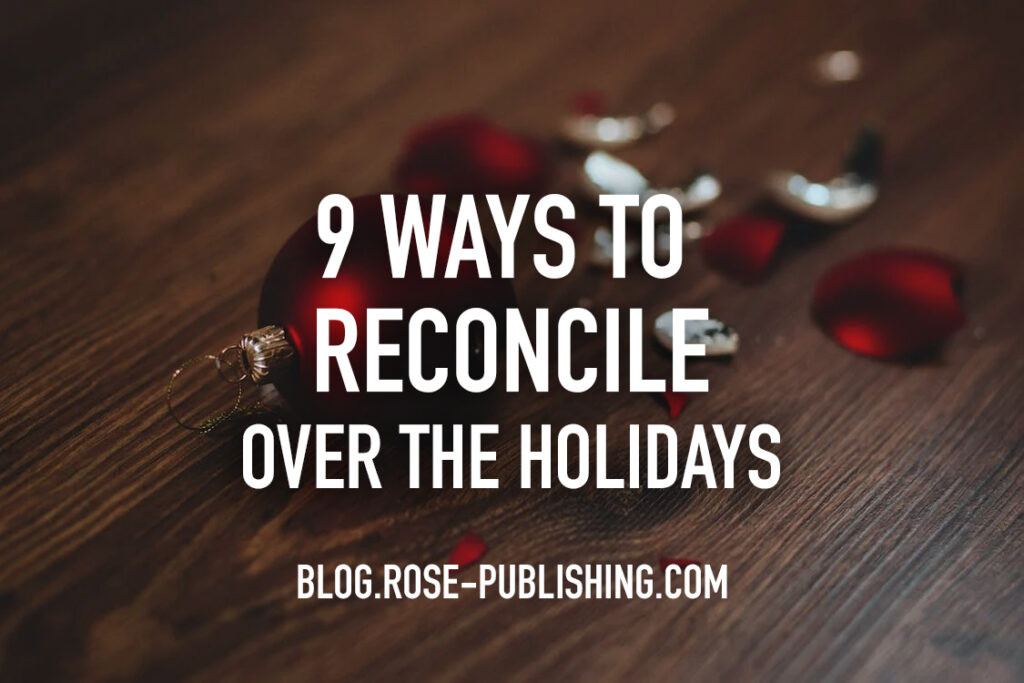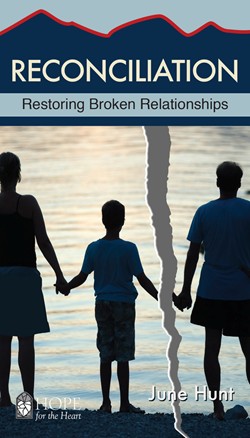
How do you handle family and holiday gatherings that have been affected by the great political divide? Perhaps you have friends that have distanced themselves because of political posts on social media. Maybe it’s uncles and aunts that only stop arguing between “Dear Heavenly Father” and “Amen.” Or the cousin that simply refuses to show up if another family member is at Christmas dinner.
It is no little known fact that relationships–among friends and family alike–have been ripped apart because of the past few years’ widening political gap. Between outrage culture, social mistrust, a technological information war, and just plain human nature, years or even decades of friendships and family ties that have been strong bonds of safety, love, and loyalty have broken, or at the very least, are hanging by tenuous threads.
The holidays can already be a painful time for those of us that have lost loved ones. We miss the presence of our passed on family and friends especially deeply when the turkey and Christmas music come out. But now there may be pain among the ones present at the table. No matter the topic of argument or what “sides” people take, the trauma of fractured relationships is real. We are not guaranteed reconciliation with every aunt, uncle, and third cousin, but it is clear that God has given us the tools to do all we can within ourselves and for each other to restore, forgive, and heal. Here are 9 steps you can take to reconcile with loved ones from author June Hunt:
9 Steps for Reconciliation
Remember, however, even if you have a heart for reconciliation, it takes two to reconcile a relationship. You can’t force it, but you can pave the way for it.As you do all you can do, rest in your relationship with the Lord—you can find your peace in Him.
- Prepare your heart for seeking reconciliation.
- Be willing to view the conflict as an opportunity for growth.
- Be willing to learn what God wants you to learn.
- Be willing to discover that you are partly at fault.
- Be willing to expose your weaknesses.
- Be willing to be open with your feelings.
- Be willing to accept a negative outcome and move on in forgiveness.
- Be willing to pray for God’s will to be done.
- “Let the peace of Christ rule in your hearts, since as members of one body you were called to peace. And be thankful” (Colossians 3:15).
- Know that refusal to seek reconciliation affects the intimacy of your fellowship with God. Humble your heart and pray:
- “Lord, I don’t want to be proud and unbending.”
- “Lord, I want Your favor on my life, not Your disfavor.”
“Lord, I want to reflect Your character and be open to reconciliation.” - “If you are offering your gift at the altar and there remember that your brother has something against you, leave your gift therein front of the altar. First go and be reconciled to your brother; then come and offer your gift”(Matthew 5:23–24).
- Seek forgiveness and apologize for words that have hurt the other person, be conciliatory.
- “I have tried to see our relationship from your point of view.”
- “I realize that I’ve been wrong in my attitude of _______.”
- “Would you be willing to forgive me?”
- “If you have been trapped by what you said, ensnared by the words of your mouth, then do this, my son, to free yourself, since you have fallen into your neighbor’s hands: Go and humble yourself; press your plea with your neighbor!”(Proverbs 6:2–3).
- Recognize the ground rules of communication.
- Offer unconditional acceptance.
- Confront the problem, not the person.
- Listen without interrupting.
- Verbalize feelings.
- Use words that build self-worth
- Aim for mutual understanding.
- Give more than you take.
- “Be completely humble and gentle; be patient, bearing with one another in love” (Ephesians 4:2).
- Be kind and gentle, trusting God to work in the heart of the other person.
- Don’t harbor resentment.
- Don’t make excuses for yourself.
- Don’t get drawn into arguments.
- Don’t fail to pray.
- Don’t have expectations of immediate acceptance.
- “The Lord’s servant must not quarrel; instead, he must be kind to everyone, able to teach, not resentful. Those who oppose him he must gently instruct, in the hope that God will grant them repentance leading them to a knowledge of the truth” (2 Timothy 2:24–25).
- Reflect the character of Christ in all that you do. In order to prepare your heart to reflect the character of Christ, pray:
- “Lord, I die to my personal rights.”
- “I have been crucified with Christ and I no longer live, but Christ lives in me. The life I live in the body, I live by faith in the Son ofGod, who loved me and gave himself for me”(Galatians 2:20).
- “Lord, I die to having to defend myself.”
- “The Lord is my strength and my shield; my heart trusts in him, and I am helped”(Psalm 28:7).
- “Lord, I die to relying on my own abilities.”“He who trusts in himself is a fool, but he who walks in wisdom is kept safe”(Proverbs 28:26).
- Enlist a mediator if necessary.
- Pray for God to prepare the heart of your offender for mediation.
- Seek a person whom your offender can respect.
- Say, “An outside person can have a different perspective that is objective. Would you be willing to consider a mediator to help us think through our problems with the hope of achieving reconciliation?”
- “If he will not listen [to you], take one or two others along, so that ‘every matter may be established by the testimony of two or three witnesses’”(Matthew 18:16).
- Do not hold yourself responsible for the outcome.
- You cannot force reconciliation to occur.
- When reconciliation is refused, don’t live with false guilt.
- A lack of reconciliation will not be wasted—God will bring something good out of it.“We know that in all things God works for the good of those who love him, who have been called according to his purpose”(Romans 8:28).
- Rest in the knowledge that you have done all you can do to seek peace.
- Continue to show love, and treat the other person with forgiveness.
- Thank God for giving you the desire to beat peace with everyone.
- Praise God for His commitment to orchestrate your own spiritual growth.
- “If it is possible, as far as it depends on you, live at peace with everyone”(Romans 12:18).
May these words be meaningful to you, as they have been to me: “If it is possible, as far as it depends on you, live at peace with everyone”(Romans 12:18)
With shared compassion,
June Hunt
Did you enjoy today’s article from June Hunt? Read more in the minibook Reconciliation, from the bestselling Hope for the Heart series!
Reconciliation
Sarcasm. Hurt feelings. Misunderstanding. Alienation. When hurt people connect with other hurt people, relationship breakdowns are sure to occur. Why is it so hard to patch things up? Who should make the first move? This 96-page book on reconciliation tackles how to forgive the “unforgivable,” how to move past the hurt, and how to restore relationships by restoring trust.
What is Reconciliation? 3 Core Truths about Broken Relationships and Reconciliation
- Forgiving someone is not the same as reconciliation.
- Unforgiveness is the root of unresolved conflict.
- Reconciliation is a restored relationship based on restored trust.
Even when there are valid reasons to feel hurt and even when the other person is undeserving, the spirit of reconciliation reflects the heart of God.
Find out what you need to know about reconciliation and healing in relationships. It includes—
- Definition Section on Reconciliation, Restoration, and Mediation: Discover the real truth that with God there is no relationship that cannot be restored. Review key definitions and encouraging Bible stories that show God’s heart and desire for reconciliation and forgiveness. Covers key Bible stories, such as David, Joseph and his brothers, Abigail, and Jesus.
- Characteristics Section: Keys to Repairing a Broken RelationshipThis helpful section answers the fundamental questions: Am I ready for reconciliation? What does reconciliation look like? and Are we required to reconcile all relationships?
- Learn how to spot the 8 characteristics of an alienating heart (pride, faultfinding, avoidance, isolation, hopelessness, etc.) and the 8 characteristics of a heart of reconciliation (humility, forgiveness, self-examination, communication, risk-taking, and more).
- Find out the 9 differences between reconciliation and forgiveness.
- Discover the root causes for a lack of reconciliation along with 20 signs of a hardened heart.
- Steps to Solution Section: How to Mend Broken Relationships and Open the Door to Reconciliation
- Get a close up look at the story of the prodigal son and its principles of reconciliation.
- Find out the 4 goals of reconciliation and how to achieve them!
- Examine your own heart with a helpful “heart test”—includes 8 questions to help you reflect on your own heart and actions toward your offender.
- Get answers to key questions, such as—
- Why am I even going through this?
- What do I do if I can’t persuade someone with a stubborn heart to reconcile?
- Should I seek reconciliation even when I am still angry?
- What do I do if my effort to bring about reconciliation with someone fails?
This helpful, easy-to-understand minibook will help you prepare your heart to resolve differences and it shows that the road to reconciliation—although difficult—is possible with God.
Paperback, 96 pages, 4 x 7 inches. Fits in a pocket or purse.
Product Code: 269X
ISBN: 9781596368897
Look for all 42 titles in the Hope For The Heart Biblical Counseling Library. These mini-books are for people who seek freedom from codependency, anger, conflict, verbal and emotional abuse, depression, or other problems.
June Hunt
June Hunt, M.A. Criswell College, is a biblical counselor whose award-winning radio program “Hope For The Heart” is heard on 900 radio outlets around the world. For more than 25 years, she has counseled people, offering them hope for today’s problems. June has helped many people with emotional, relational, and spiritual problems experience God’s love through biblical hope and practical help.
Hope For The Heart Board of Reference
Dr. Henry Blackaby (Blackaby Ministries International), Dr. Rick Warren (Saddleback Church), Dr. Tony Evans (The Urban Alternative), Joni Eareckson Tada (Joni and Friends), Kay Arthur (Precept Ministries International), Dr. David Jeremiah (Turning Point), Dr. Tim Clinton (American Association of Christian Counselors), Dr. Bruce Wilkinson (Bruce Wilkinson Ministries), Dr. Chip Ingram (Living on the Edge), Roger Staubach (SRS Real Estate Partners), Steve Arterburn (New Life Ministries), Vonette Bright (Campus Crusade for Christ), Dr. Charles Stanley (In Touch Ministries), Zig Ziglar (Ziglar Training Systems)







Revisiting this lovely post for Easter. It’s so important to connect with our family during holidays, especially those holidays that center around the Lord.